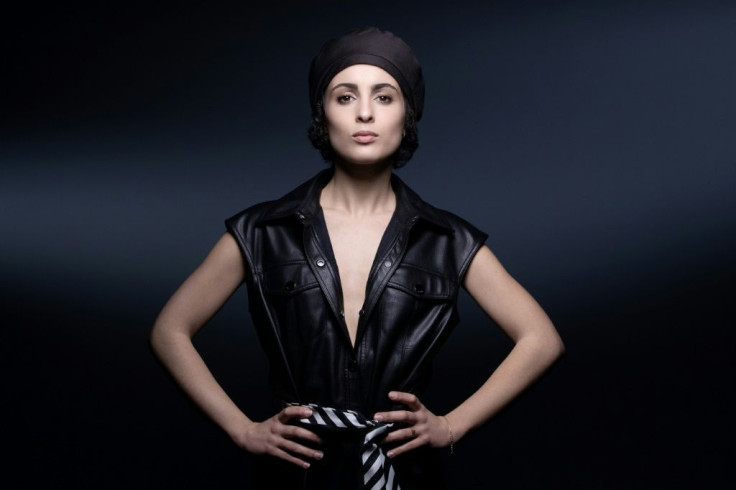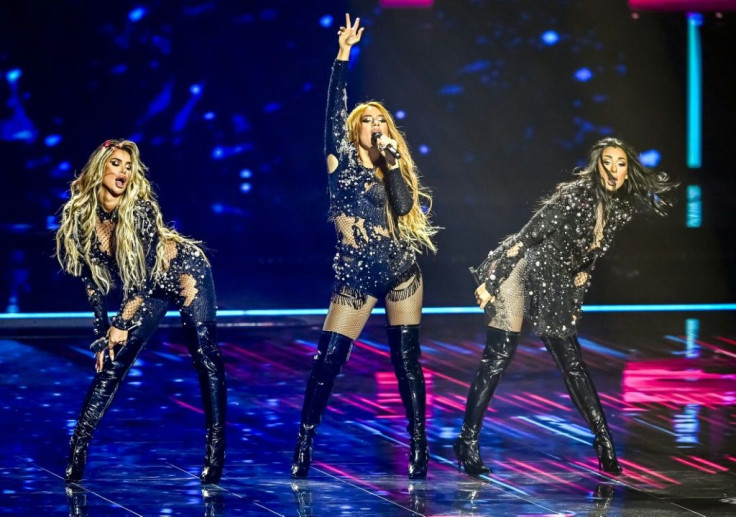Eurovision Makes Covid-lite Return In The Netherlands
The kitschy glamour of Eurovision is back, with the Dutch hosting a scaled-down, coronavirus-safe version this week after the song contest was cancelled last year.
Delegates will be officially welcomed at the grand opening of this year's week-long event on Sunday afternoon, which includes a glitzy "Turquoise Carpet" event where contestants will strut their stuff, organisers said.
But four teams have already been nixed from the opening ceremony after a Polish and Icelandic delegate tested positive for Covid-19 and Malta and Romania are staying away as a precaution because they are staying in the same hotel.
Around 3,500 Covid-tested fans will be allowed to attend the May 22 final in Rotterdam as the return of the pageant injects some glitz into Europe's cautious reopening.
French singer Barbara Pravi, dubbed a modern-day Edith Piaf, is the bookmakers' favourite to end her country's 44-year Eurovision drought, followed by Italy and Malta.
Performers will be in a special "bubble" under strict rules imposed by the Dutch government to allow the contest at the port city's Ahoy Arena to go ahead.

"We don't take lightly the responsibility of hosting the Eurovision Song Contest at this challenging time," said Eurovision executive supervisor Martin Oesterdahl.
Known for its flamboyant costumes and cheesy songs, Eurovision is watched by more than 180 million people in over four dozen countries as far afield as Australia.
But the televisual pageant was scrapped for the first time in its six-decade history last year as the coronavirus pandemic began sweeping the globe.
On Saturday, organisers announced that one of the members of the Polish delegation had tested positive for Covid-19 and that the whole delegation -- including singer Rafal Brzozowski -- had gone into quarantine.
Dutch media said all delegation members were being tested and that positive tests might prevent Poland from performing in Thursday's semifinal in which case a recording of the group's last rehearsal would be shown.
A similar fate befell the Icelandic delegation on Sunday.

Last year's cancellation was a bitter disappointment for the Netherlands, which won the right to host the contest after Dutch crooner Duncan Laurence won in Israel in 2019.
At the peak of the pandemic, Rotterdam's Ahoy Arena was repurposed to host 88 beds for coronavirus patients.
But now it will host live audiences not only for the final but also for two semi-finals on Tuesday and Thursday.
Under the Dutch government's Fieldlab programme of trial events, each show will allow an audience of 3,500 people, around 20 percent of the Ahoy Arena's capacity.

For viewers used to a sea of flags and glammed-up artists hugging and celebrating, the 2021 Eurovision Song Contest will however be different.
Artists from most of the 39 countries involved are travelling to the Netherlands, but some -- such as Australia -- will take part via pre-recorded video.
National delegations have to follow strict protocols, remaining separated from the audience and testing every 48 hours.
Organisers "politely reminded" participants of the rules last week after photos and videos showed artists embracing journalists, while Ukraine's entrant tested negative after a scare.
They also said they expected "very few" fans would travel from abroad due to Dutch travel restrictions including a 10-day quarantine and PCR test requirement.
Despite recently easing some restrictions, the Dutch government is still struggling with a slow vaccine rollout, in a country of 17 million people where 17,000 people have died and 1.57 million have been infected.
But Eurovision's unique mix of kitsch and simmering national tensions remains the same at heart despite the pandemic.
France's Barbara Pravi carries her country's hopes with her moody number "Voila".
France has been waiting for a Eurovision champion since 1977 when Marie Myriam won the competition.
Malta's singer Destiny Chukunyere, 18, singing "Je Me Casse" (French for "I'm outta here"), has attracted attention -- as well as body-shaming trolls -- for her bold wardrobe choices, including a bubblegum-pink fringed number.
"This is a dream come true and a testament that I am on the right track and that hard work pays off," said the singer, who won the second edition of X Factor Malta, when her nomination was announced.
Weird and wonderful Eurovision stories have emerged as with any other year.
Russia's entry, "Russian Woman" performed by Manizha, has upset conservatives at home with its anti-sexism lyrics.
Cyprus meanwhile has stood by its entry "El Diablo" even after the Orthodox Church accused it of advocating "devil worship".
And while the coronavirus pandemic has made for a very different Eurovision this year, it is not the first time the event has collided with reality.
The 2017 edition held in conflict-hit Ukraine was marked by tensions with Russia while the last show in Israel in 2019 sparked protests by pro-Palestinian activists and artists.
© Copyright AFP 2024. All rights reserved.





















